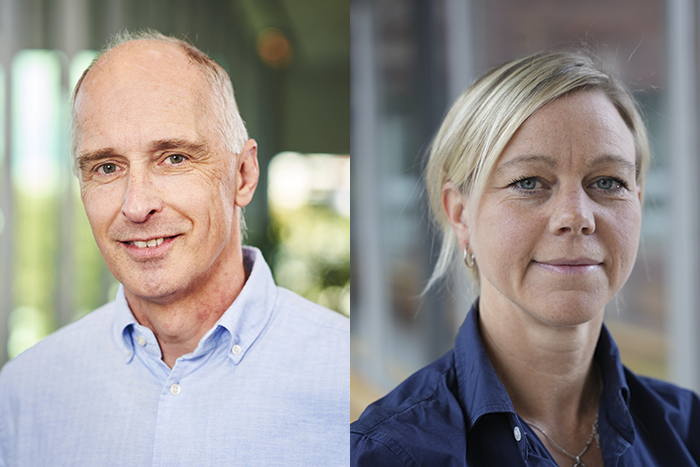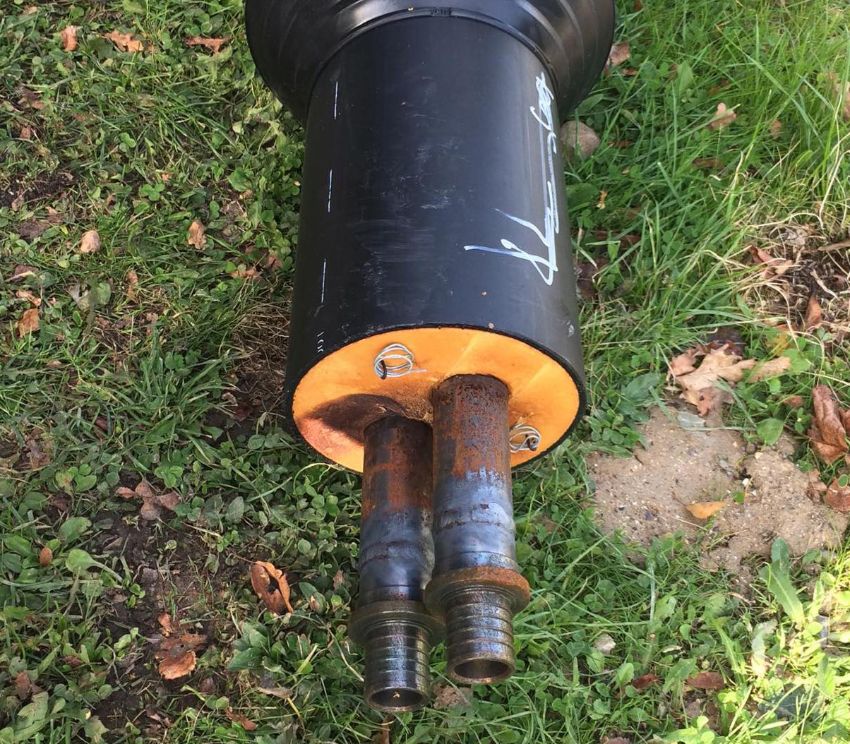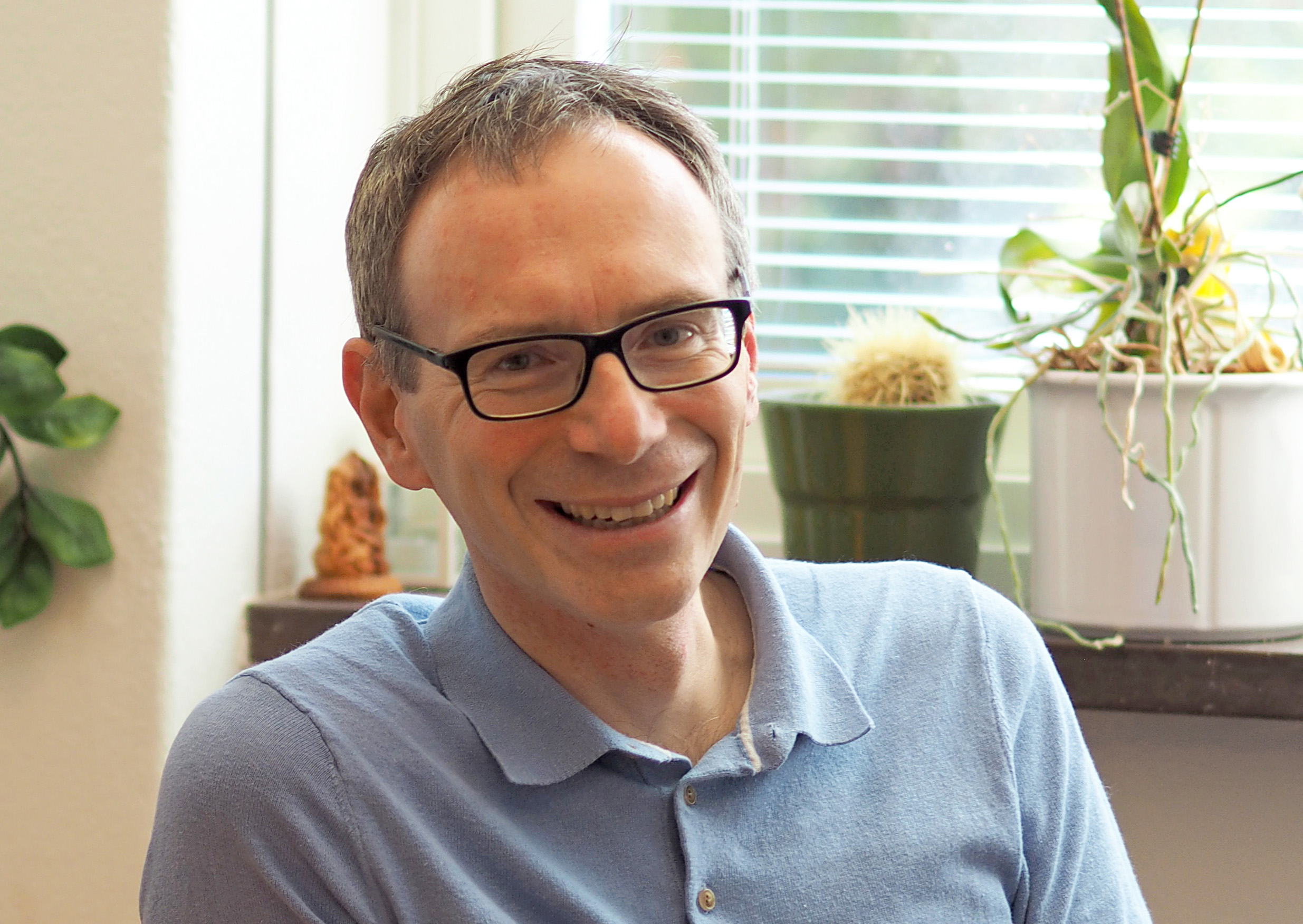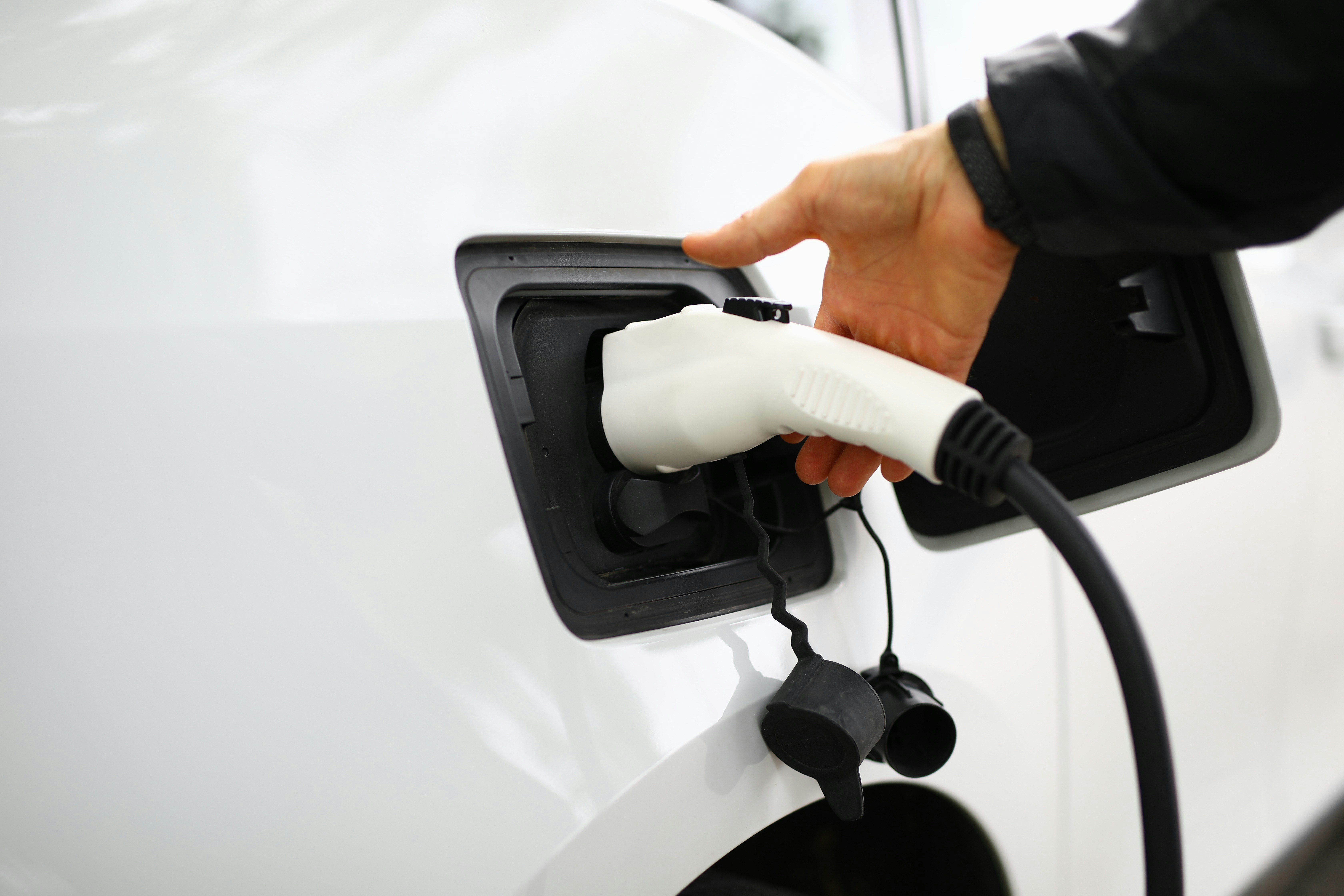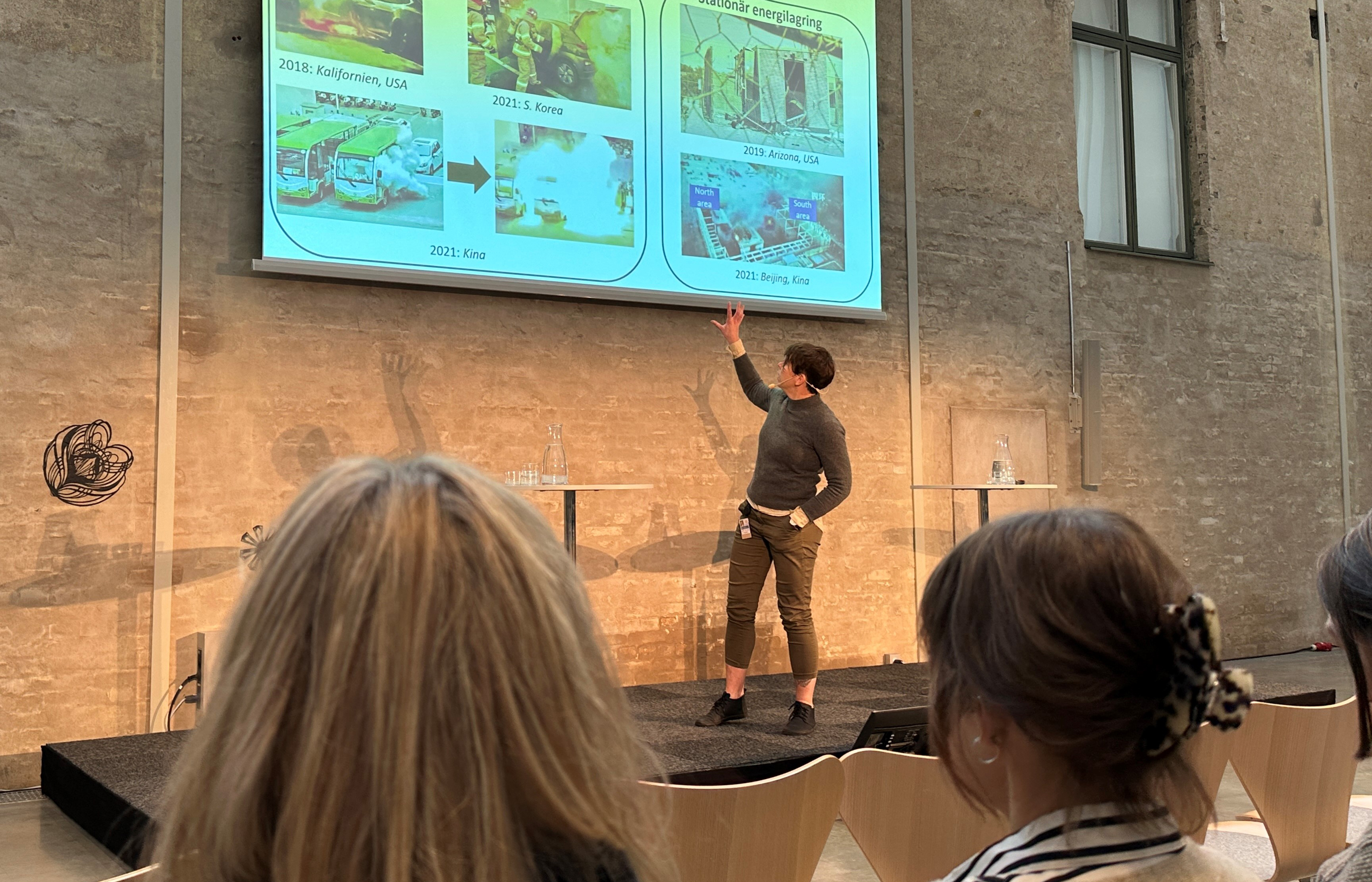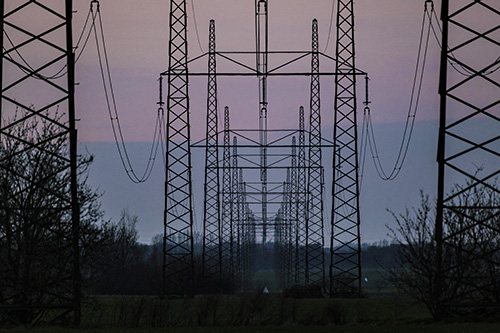
LTH Profile Area: Energy Transition
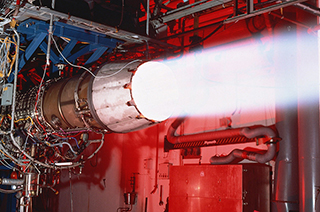
Infrastructure
Energy Transition owns and operates experimental facilities and contributes to shared resources. Links below will open the respective infrastructure's website.
- Combustion engine laboratory with hydrogen and fuel cells
- Electric power laboratory with electric machines, power electronics and batteries
- Evolution Road electric road system in Lund
- Laserlab Europe
There are solutions for making our society independent of fossil fuels. But to be able to apply these solutions, interdisciplinary research and collaboration are needed in areas such as sustainable fuels and thermal energy, system studies, electrification, and energy storage – which are fields of excellence of the Profile Area.
By the joint forces working on thermal and electrical energy and related conversion, transmission, distribution and storage technologies, LTH has a unique possibility to make a strong contribution to the transition from a fossil dependent to a sustainable society.
Focus areas
Electricity based on renewable sources makes it possible to eliminate fossil fuels through electrification. The research is organized in three directions:
- Generation, transmission and distribution of electricity from renewable sources
- Electrification of transports
- Electrification of industry
Contact: Fran Marquez and Richard Pates
Renewable fuels play an important role in applications where electrification is not the best option. The research is organized in three directions:
- Production of renewable fuels
- Sustainable drive systems for vehicles
- Combined heat and power, and reused heat
Contact: Sara Blomberg and Mattias Richter
Energy storage is essential for balancing variable renewable generation and for supplying energy when it is needed. Sector couplings make it possible to convert electricity to and from energy stored in other forms than electricity. The research is organized in three directions:
- Design and use of energy storage
- Decarbonization of energy use in industrial processes
- Indirect sector electrification – Power-to-X
Contact: Martin Andersson and Kerstin Sernhed
Education related to energy transition
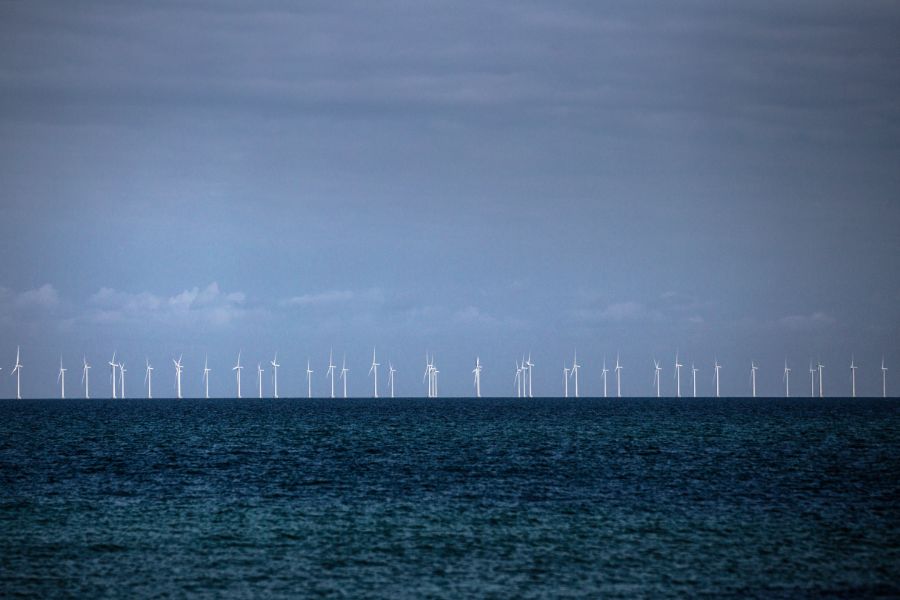
Collaboration
The Profile Area develops technical solutions together with academic partners across the world including the local research facilities ESS and Max IV. Equally important is to introduce the solutions through collaboration with industry and authorities, where the national competence centres form important networks. Links open the respective partner's website.
Do you want to become a member of this profile area?
Are you or your research group interested in joining this profile area?
Contact Cecilia Schubert, Communications Officer, for more information:
cecilia.schubert@science.lu.se
There are solutions for making our society independent of fossil fuels. But to be able to apply these solutions, interdisciplinary research and collaboration are needed in areas such as sustainable fuels and thermal energy, system studies, electrification, and energy storage – which are fields of excellence of the Profile Area.
By the joint forces working on thermal and electrical energy and related conversion, transmission, distribution and storage technologies, LTH has a unique possibility to make a strong contribution to the transition from a fossil dependent to a sustainable society.
Focus areas
Electricity based on renewable sources makes it possible to eliminate fossil fuels through electrification. The research is organized in three directions:
- Generation, transmission and distribution of electricity from renewable sources
- Electrification of transports
- Electrification of industry
Contact: Fran Marquez and Richard Pates
Renewable fuels play an important role in applications where electrification is not the best option. The research is organized in three directions:
- Production of renewable fuels
- Sustainable drive systems for vehicles
- Combined heat and power, and reused heat
Contact: Sara Blomberg and Mattias Richter
Energy storage is essential for balancing variable renewable generation and for supplying energy when it is needed. Sector couplings make it possible to convert electricity to and from energy stored in other forms than electricity. The research is organized in three directions:
- Design and use of energy storage
- Decarbonization of energy use in industrial processes
- Indirect sector electrification – Power-to-X
Contact: Martin Andersson and Kerstin Sernhed

Collaboration
The Profile Area develops technical solutions together with academic partners across the world including the local research facilities ESS and Max IV. Equally important is to introduce the solutions through collaboration with industry and authorities, where the national competence centres form important networks. Links open the respective partner's website.

Infrastructure
Energy Transition owns and operates experimental facilities and contributes to shared resources. Links below will open the respective infrastructure's website.
- Combustion engine laboratory with hydrogen and fuel cells
- Electric power laboratory with electric machines, power electronics and batteries
- Evolution Road electric road system in Lund
- Laserlab Europe


